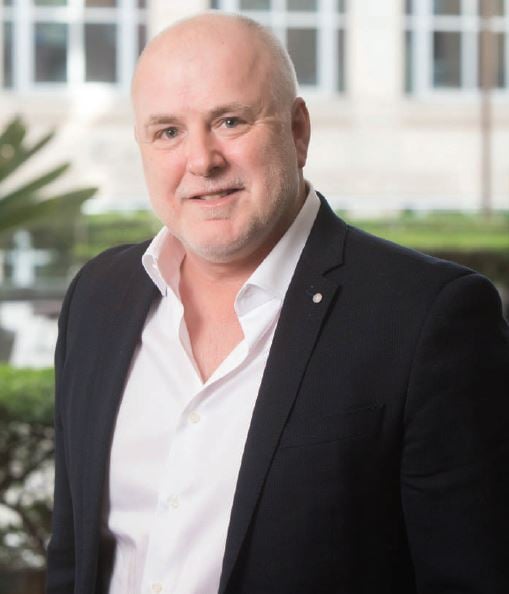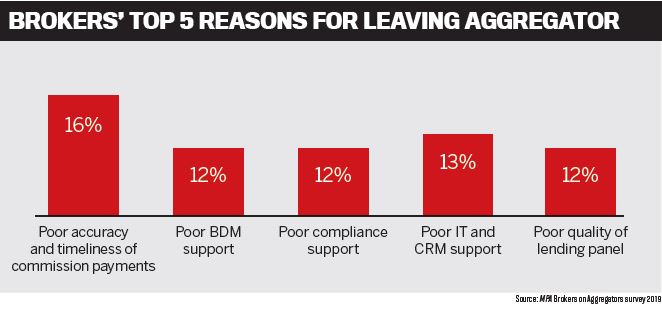For Specialist Finance Group, being independently owned is the direction it wants to stay towards

For Specialist Finance Group, being independently owned is the direction it wants to go in. Founder and managing director William Lockett explains why
MPA: Why is it so important to you that Specialist Finance Group remains an independent aggregator?
William Lockett: I have identified as our true north business direction that it is important for us to be an aggregator that is individually owned. Our ownership as an aggregator is not compromised by having ownership structures with other major parties within the financial services sector.
You have very clear and defined lines, and for me, being independent and privately owned and being the sole owner of my company, when I make a decision I base it upon my beliefs and my true values.
For argument’s sake, if Specialist Finance Group was 10% owned or even 5% owned by a bank, the perception would be that that part-owner would have an input into not only the running of the company but also the direction and decision-making of the company. Whether the influence is there or not, the perception is there. So we could not blame the industry or brokers for not believing we were truly independent purely because of that ownership structure.
MPA: You offer various arrangements for your brokers to join. What are they and why do you offer these flexible options?
WL: We have four business models for our members to consider. Those four business models are a monthly fee agreement, an annual fee agreement, a percentage fee agreement, and we also have a transaction fee agreement.
We recognise that all finance brokers have different businesses and business directions and different business models. Because a large part of our business ethos is to be flexible, we wanted to provide any member that joins us or is currently with us the option of the four different aggregated options. We also wanted to provide not only the option up front but also, as finance brokers and their businesses change, it also gives them an avenue to move from one business model to another that better suits their requirements.
MPA: From feedback with brokers, are you seeing that they are keen to join an independent aggregator over one that is bank owned? Why?
WL: That has always been reasonably steady. Finance brokers have enough dealings with banks in their normal routine, and so because of the involvement that their business will normally have in dealing with third party banks, they like to have a business set-up that’s devoid of any sort of bank structure.
This is not denouncing bank ownership or bank influence; it’s clearly defining our business structure. Brokers deal with banks all day every day in the submitting of loans, getting the loans approved, working with them on behalf of their clients – and a lot of them find in their relationship with the aggregator that they would like to have a relationship with them that’s free of any bank ownership.
We’re probably the largest independent privately owned aggregator in Australia. Part of our growth and success is because we are independent. I’m not saying their model is wrong and ours is right; we have just identified that we want to be truly independent for our own reasons.
It’s up to brokers to decide which particular model they want to be. Brokers have a clear choice: they can aggregate through an aggregator that is either partly owned or fully owned by a bank, or they can choose an aggregator such as SFG which is completely 100% independent of ownership.
MPA: How are you continuing to work with brokers through changing regulations?
WL: It never changes. Just because there have been more changes in the last six or 12 months doesn’t mean the aggregator stops doing what they’re doing.
The only thing that’s changed in the course of the last 12 months has probably been a greater change in landscape in terms of compliance and regulations. But good compliance is good business; you can never be too compliant. In terms of regulations, good regulations are great; they’re great for the brokers, they’re great for the banks, they’re great for governing bodies, they’re great for aggregators and, more importantly, they’re great for the consumer that engages the brokers.
We have constant communication, which is generally by way of direct meetings with our brokers, whether they be individual or in groups, as well as constant weekly communication from me, right through to my director’s comments which I give out to our member base on a weekly basis.
We do a lot of EDM announcements, a lot of webinar training, etc., so all of those things combined, the communication and the direct touch of our brokers, keeps them fully abreast of changing regulations.

WL: Whether we are privately owned or bank owned, both business models have the ability to communicate and communicate well. There are a lot of big businesses and big corporations that communicate very well.
We say we communicate very well with our brokers. I get great feedback from our members that, with respect to our availability and our response times in terms of any communication, they feel as though their matters are attended to in a very efficient matter.
I have a very direct and personal business approach to a large proportion of my member base. I ensure that I at least ring one of my members who I haven’t spoken to for at least 30 days.
I don’t only rely upon what I hear from my management team – and I could hear great things from my management team – but I also take it upon myself to hear it directly from our member base.
No member would be able to say they’ve left a message or emailed me and haven’t been responded to.
MPA: You launched SFGConnect two years ago. Tell me about this platform and how it is helping brokers.
WL: What we thought would be one of our biggest and most difficult decisions ended up being our easiest and best decision that we’ve made. We knew when we made the decision that it was the right decision. We had done a lot of research in the area; we had got together a team of individuals to consult on the matter.
When it came together we compared it and point-scored it against other software proprietary channels out there in the marketplace. We wanted to release something we thought was pretty spectacular, and since we’ve released it and rolled it out to in excess o
It’s very much a software for brokers. Its ease of use is great; its functionality, the integrations involved have made their lives so much better.
It has made our brokers and their businesses more efficient; it has certainly made them more compliant with the requirements, and it has helped give them more control and helped them grow their businesses.




